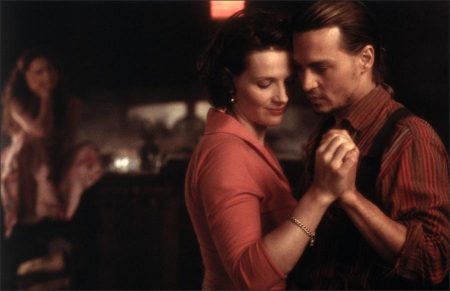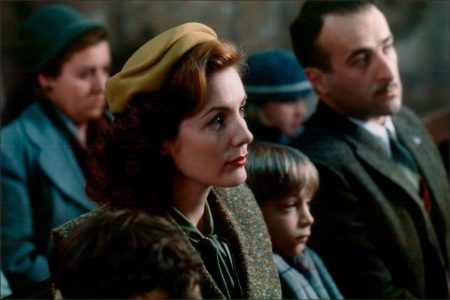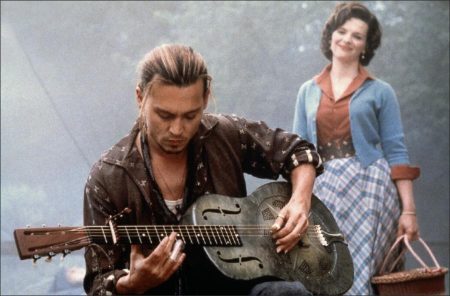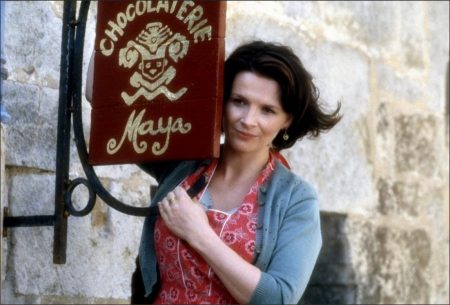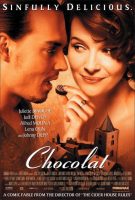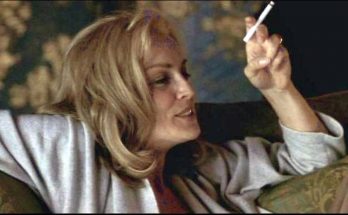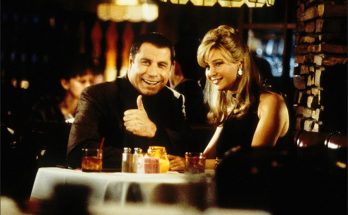Chocolat Movie Trailer. Chocolat poses a less-than-penetrating question: Can the liberating virtues of pleasure — here embodied by the warm, inviting power of chocolate — triumph over well-meaning but closed-minded small-town zealots?
If ”Chocolat” sounds like a dangerous combination of stories — ”Like Water for Footloose” — there’s nothing dangerous about it. The director, Lasse Hallstrom, has an almost supernatural faith in his ability to pull the movie off, and darned if he doesn’t. This crowd-pleaser is the feature-film version of milk chocolate: an art house movie for people who don’t like art house movies. That’s hardly a compliment.
The film could also be titled ”Invasion of the Mole People” because it’s that Latin chocolate sauce braced with a hint of chili pepper that Vianne (Juliette Binoche), an enterprising sensualist, brings to a small French town in the late 1950’s. She and her daughter, Anouk (Victoire Thivisol), blow into town on a north wind with their exotic blends of sweets. Vianne sets up a chocolate shop with an assortment of goodies.
That she does so during Lent sends shudders through the quiet little village and its determinedly quirky population. The mayor, Comte De Reynaud (Alfred Molina), rules the town — he often instructs the priest, Pere Henri (Hugh O’Conor), on exactly how sermons should be phrased — and thinks any behavior that deviates from the abstemious during Lent is absolutely the wrong moral course.
It doesn’t help that the free-spirited Vianne is a single mother who has never been married and is unafraid to expose that fact. Vianne also has what can only be called chocolate radar: upon meeting someone, she can tell instantly what type of treat would be good for that person. Everyone, that is, but the roguish gypsy Roux (Johnny Depp), a man who is as gifted with a bevel as he is with a dobro. He and Vianne are branded as immoral by the mayor, who is disgusted by what they represent.
Vianne sparkles like an oily diamond, and she’s such an aggressively good-natured, wholesome supporter of fun that, in contrast, sanctimoniousness doesn’t seem so bad. As embodied by Mr. Molina, the mayor is quite a presence; he does enough acting for several people.
”Chocolat” is so assured in its manipulative prowess that only afterward do you realize how fully you’ve been worked over. The comic anxiety Mr. Hallstrom poured into ”My Life as a Dog” to keep that picture hopping has melted into a sprightly charm. The prickliness of his ”Cider House Rules,” in which the subject was at war with the film’s caramel polish, stuck with you. Here the conflict seems strictly for show; though Vianne and Anouk suffer a bit for being different, they can’t lose. Who could have trouble with chocolate, with the possible exception of the American Dental Association?
”Chocolat” is extraordinarily well cast, even though the actors are costumed so that you can guess their eccentricities as soon as you see them. Vianne and Anouk roll into town in red cloaks, signposts of trouble. (It turns out they’re descended from a hotblooded Latin woman who also unleashed the rapturous allure of chocolate.)
The widowed Mme. Audel (Leslie Caron, still luminous) has been wearing black since her husband died in the war — World War I. The grim-faced Armande Voizin (Judi Dench), who rents the store to Vianne, is done up in heavy shawls until Vianne offers her a cup of chocolate, the equivalent of drawing a smiley face, which brightens her up. Armande’s toughness dissipates under the good vibes that emanate from Vianne’s little place, a chocolate shop that manages to be both sumptuously designed and bohemian.
Vianne and Roux are in touch with the natural parts of themselves — D. H. Lawrence-inspired figures for people who don’t want the messy sexuality that Lawrence also calls for. With her bright eyes and generous spirits, Vianne is so good-natured she takes the seediness out of bohemia. ”Chocolat” might be a little more fun if she were somewhat aware that she is creating a village of sugar abusers. Instead, she mystically fulfills the needs of everyone with whom she comes into contact because, in the end, the people who inhabit ”Chocolat” all have voids in their lives. They’re people who need people, and thanks to Vianne, they’re the luckiest people in the world.
Even though the picture is set in France, many of the actors speak English with a French accent, the ”Hogan’s Heroes” school of elocution. Still, Mr. Hallstrom handles his cast well. Carrie-Anne Moss, as an upright widowed mother swathed in mournful baby blue, radiates glimmers of hurt; she shows it’s not easy to keep up such a front. Mr. Depp, using a whiskey brogue, gives one of his few unabashed leading-man performances; he’s relaxed and sneaky.
And it’s a kick to see Ms. Binoche and Lena Olin together in roles that reverse their positions in ”The Unbearable Lightness of Being.” This time around, Ms. Olin is the frightened innocent, trapped in a loveless marriage to Peter Stormare. He has played this brute so often for the Coen brothers — with comic overtones — that we’re unsure how seriously to take him.
The good thing is, there’s probably no more appropriate food-themed movie for theaters to show (besides maybe a film called ”Popcorn”) than ”Chocolat.” Perhaps, if we’re lucky, one day Lloyd Kaufman, genius of the no-budget Troma studios, will come up with the perfect second half of a ”Chocolat” double feature: ”Nachos.”
Chocolat (2000)
Directed by: Lasse Hallström
Starring: Juliette Binoche, Lena Olin, Johnny Depp, Judi Dench, Peter Stormare, Carrie Anne Moss, Hélène Cardona, Alifred Molina, Gaelan Connell, Lena Olin, Tatyana Yassukovich
Screenplay by: Joanne Harris, Robert Nelson Jacobs
Production Design by: David Gropman
Cinematography by: Roger Pratt
Film Editing by: Andrew Mondshein
Costume Design by: Renee Ehrlich Kalfus
Set Decoration by: Stephenie McMillan
art Direction by: Lucy Richardson
Music by: Rachel Portman
MPAA Rating: PG-13 for a scene of sensuality and some violenc.
Distributed by: Miramax Films
Release Date: December 15, 2000
Views: 176
